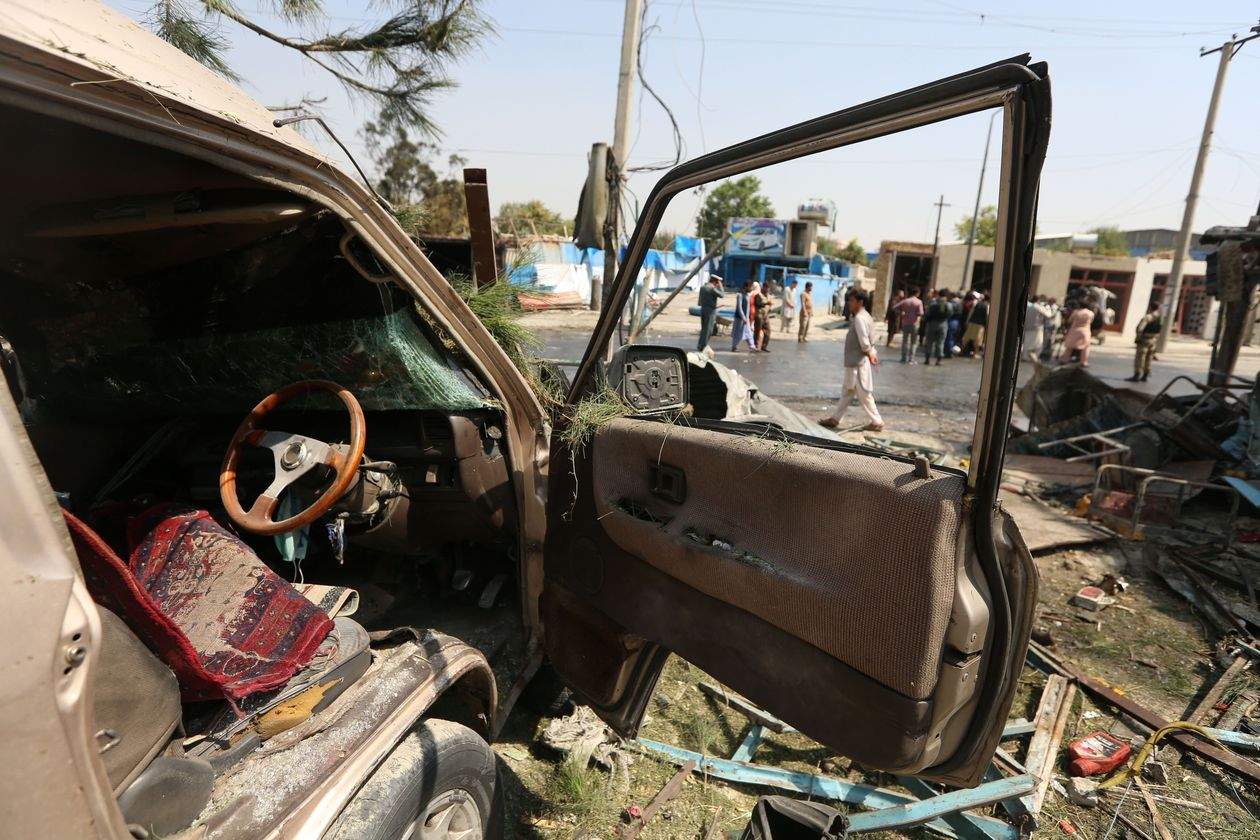Bomb Targets Afghanistan’s Vice President as Kabul, Taliban Prepare for Historic Talks
Wednesday, September 9, 2020
Categories: ASCF News Emerging Threats National Preparedness

Source: https://www.wsj.com/articles/bomb-targets-afghanistans-vice-president-as-kabul-taliban-prepare-for-historic-talks-11599661264
A bombing targeting the convoy of Afghanistan’s first vice president killed at least 10 people in the country’s capital, an indication of the high stakes in the U.S.-backed talks between Kabul and the Taliban to end nearly two decades of fighting.
A bomb placed in a wheelbarrow detonated near Amrullah Saleh’s convoy in Kabul early Wednesday, Interior Ministry spokesman Tariq Arian said. Mr. Saleh suffered minor injuries in the attack that wounded more than 15 people, including several of his bodyguards, according to the ministry.
Hours after the bombing, Mr. Saleh appeared in a video message from his office with a bandage on his left hand.
“Our fight continues and I am in the service of people of Afghanistan,” he said.
No one immediately claimed responsibility for the bombing. The Taliban quickly denied any involvement, but the interior ministry said the explosives were similar to ones used in previous attacks by the Haqqani wing of the insurgent group.
Mr. Saleh, a former intelligence chief, is an outspoken enemy of the Taliban and has found himself in the crosshairs before. He was targeted in a suspected Taliban attack in 2019 during his campaign as running mate for President Ashraf Ghani. He is also a leading critic of the peace process and has said the key to peace is the Taliban’s commitment to a cease-fire.
The country’s conflict has claimed more than 160,000 Afghan lives, including combatants, displaced tens of thousands of people and destroyed schools, hospitals and other infrastructure.
The first-ever direct talks between the Afghan government and the Taliban were expected to begin this week in the Qatari capital of Doha, but are set to be delayed amid divisions within both negotiating teams and a shake-up in the leadership of the Taliban delegation. Negotiations are expected to be tumultuous and drawn-out.
Kabul and the Taliban have yet to agree on an agenda or a start date for talks. The most public disagreement has been over the fate of six Taliban prisoners jailed in Kabul for killing Australian and French soldiers. The top U.S. envoy for Afghanistan reconciliation, Zalmay Khalilzad, is in Doha to urge both sides to the table.
Following Wednesday’s attack, participants were firming up protocol details for an opening ceremony, and a plane was expected to bring the prisoners to Doha in the coming days, signaling progress on the thorny prisoner-exchange issue, according to a person briefed on recent meetings in Qatar.
The talks follow a February accord between the Trump administration and the Taliban. This called for the U.S. to pull all its forces out of Afghanistan over the next 14 months in exchange for the Taliban pledging to prevent militant groups like al Qaeda from using the country to plan strikes on the West, and to discussing a long-term cease-fire with Kabul.
The Taliban faces internal disagreement over how to approach the talks. Last week, the group’s leader, Haibatullah Akhundzada, appointed Abdul Hakim Haqqani, a hard-line cleric, to head the negotiating team. He replaced Mullah Baradar, a co-founder of the movement, who was imprisoned in Pakistan for eight years until 2018. However, Mr. Baradar remains the Taliban’s head of political affairs and has continued to participate in meetings in Doha.
Mr. Haqqani—who is not related to the Haqqani family wing of the insurgent group—is one of the Taliban’s most senior religious figures, and close to Mr. Akhundzada, who used to be his deputy in the Taliban’s judicial branch.
His appointment confirms that the Taliban is serious about negotiating, and can help bestow religious legitimacy on any outcome from the talks, according to people briefed on the meetings.
The Kabul delegation is made up of representatives of President Ghani and Abdullah Abdullah, who leads the government in the peace talks. Mr. Ghani and Mr. Abdullah agreed earlier this year to share power after a fraught election, and are still deeply divided.
Despite spats of significant violence and several high-profile attacks, the death toll in Afghanistan has dropped since the Taliban and the U.S. reached a breakthrough in the peace process in February.
Nearly 11,000 Afghans, including combatants, were killed in the first half of 2020, compared with more than 41,885 for the whole of 2019, according to the Armed Conflict Location & Event Data Project, a war monitor.
Photo: A bomb in a wheelbarrow detonated near Vice President Amrullah Saleh’s convoy in Kabul. - PHOTO: JAWAD JALALI/SHUTTERSTOCK











